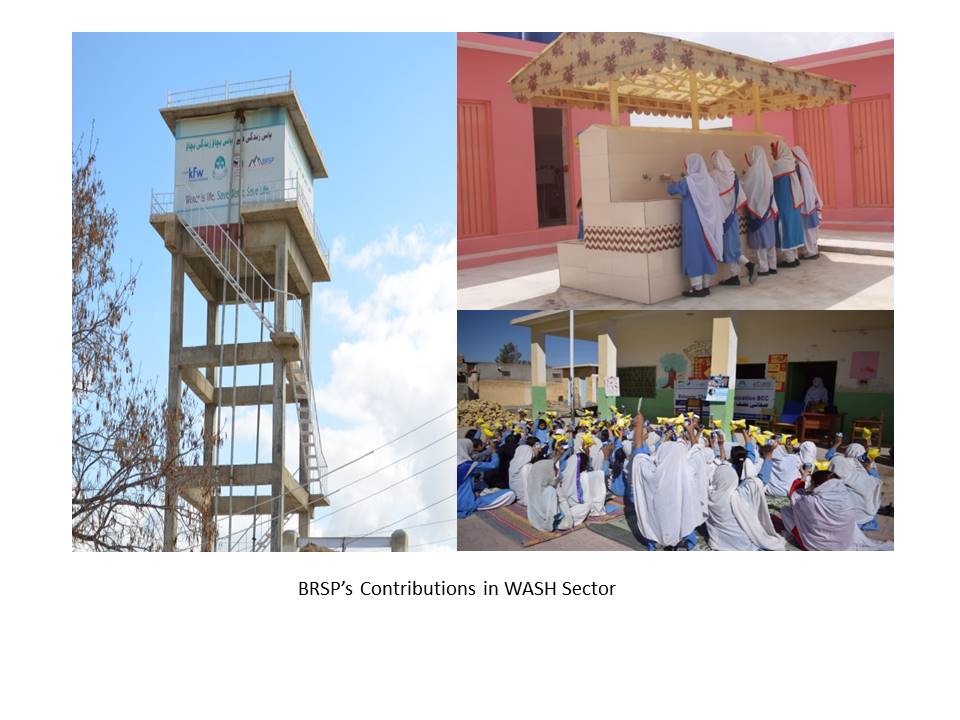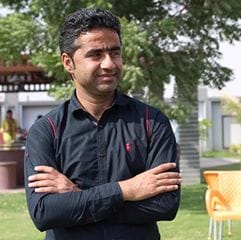Globally, water resources face threats to the growing population, increase in urbanization, rapid industrialization, and an increase in food production. As a result, this whole scenario displaying a global threat to human health and the ecosystem.
In Pakistan, especially Balochistan’s vulnerability to natural disasters, climate changes, and external and internal migration due to human-made conflicts often affect thousands of people who need emergency water and sanitation support. This situation imposes sustainable access to water, sanitation, and hygiene issues in the primary health units.
The UNICEF section on WASH (Water, Sanitation & Hygiene) explained the current status that although Pakistan has achieved significant progress in improving sanitation access, 25 million people still practice open defecation, resulting in adverse health children. In Pakistan, approx 53,000 children under age five die annually from diarrhea due to insufficient water and sanitation. Similarly, about 70 % of peoples are forced to drink bacterial water.
Contrary, the dawn report 2019, investigated that about 9,247 government-run schools in Balochistan don’t have drinking water; 9,838 schools have no toilets, which sows a bleak picture of WASH facilities at the provincial level.
Although a global issue these days, Balochistan is facing a scarcity of water for a long time. The majority of people don’t have access to safe drinking & water for domestic use.
The provincial government has declared a water emergency in most districts. But they are reluctant to admit it that they don’t have a future roadmap for water scarcity. Most of the local tube wells are dysfunctional due to the unavailability of water and funds. More than 2500 government & private tube wells are functional in the city, and similarly, the daily water consumption is 94%. Contrary, the underground water level is going down, an alarming situation for the provincial govt.
There is a dire need for sustainable improvement in the natural resource management (NRM) and WASH (water, sanitation, and hygiene) sectors of Balochistan.
Natural Resource Management (NRM) Sector

To protect natural resources (ecosystem, water, land, forest wildlife, etc.) and promote sustainable utilization, specifically water management and conservation for the community needs in the local context.
To support and educate communities for knowledge and behavior change about better water consumption and generating economic benefits from natural resources.
Providing access to safe drinking water & Irrigation facilitates
BRSP, under its “Integrated Water Resource Management (IWRM)” project, has been working on water conservation & management since 2016 via harnessing people’s potential for uplifting their economic and social services in the local context.
BRSP, under its IWRM project, has reached a total of 39,919 households and constructed 732 Irrigation Schemes including (Spate irrigation, Solar pump, storage pond, irrigational channel, and pipeline) which benefited 34,461 households at targeted districts (Qilli Abdullah & Pishin) of the province. Similarly, 141 Karezes improved for drinking and irrigation purposes, which helped 3500 houses. Moreover, 57 Check Dams constructed in rural districts, benefited 1300 households. Besides, 1,058 homes got Solar Electrification facilities at their localities. On the other hand, around 50,000 plants were planted in different rural areas.
Educating Communities for Behavior Change & Economic Opportunities
For behavior change and generating economic opportunities, manager NRM & WASH section added that BRSP introduced 6 High Irrigation systems with low delta plants and installed 65 Poly Tunnels to generate economic earrings. In general, 94,165 households benefited via different CPIs interventions and awareness sessions delivered in the province’s rural districts. Overall, 94,900 trained on NRM (including IWRM and Water management) including (70 individuals trained on O&M of Solar lightening; 1,000 community members trained on IWRM (Integrated Water Resource Management), and 150 government officials trained on service delivery.

BRSP’s WASH (water, sanitation, and hygiene) Sector
BRSP’s aim in the WASH sector is; to reduce poverty & vulnerability by improving the population’s health facilities by ensuring better access to clean drinking water facilities, improved sanitation systems, and hygiene practices.
Providing Access to Clean Drinking Water Facility
BRSP has been working in the WASH sector for the last two decades and completed various projects during this period. From 2009 to 2014, BRSP implemented a project titled, “Improved access to and demand for quality water, sanitation & hygiene services in Quetta, Pishin and Qilla Saifullah, Balochistan” the Government of the Federal Republic of Germany through KFW Development Bank. This project was completed in three phases. BRSP, under this project, came into partnership with the government of Balochistan titled “government –civil society-community.” In which, government department called PHED (Public Health Engineering Department) and BRSP implemented a community sustainable ownership project by strengthening the allocation of land for source development under different water systems. It constructed 1,240 Small and Large Scale Drinking Water Schemes under various projects, which benefited more than 1 million people (male and female) across Balochistan.
Provision of Safe Sanitation facilities
For Safe Sanitation facilities, BRSP constructed 22,749 toilets, which benefited 138,159 people (including emergency shelters toilets and PWDs toilets). Under community development schemes, the organization provided sewerage and street pavement to 48 villages of Nohisar at district Quetta. Moreover, BRSP rehabilitated/installed WASH facilities in 561 Schools, which benefited 171,605 students and teachers. Similarly, 5 Menstruation Hygiene Management (MHM) washrooms were constructed in Girls Schools. Contrary, the organization repaired & provided necessary WASH facilities to 464 (16) Basic Health Centers.
Educating Communities on WASH Facilities
For Behavior Communication Change (BCC), a total of 34167 students & teachers received School Sanitation and Health Education (SSHE) knowledge on healthy and hygienic behaviors and ended open defecation. Similarly, 444 Wash committees and 257 WASH Clubs formed in government schools. On the other hand, 5000 girls school students sensitized Menstruation Hygiene Management (MHM) and provided 60 MHM Kits. Moreover, 24,500 hygiene kits were distributed to government schools of district Quetta. Besides, about 318,512 community members were sensitized on health and hygiene. In general, a total of 321 villages was certified as ODF.
Contributing to the Government’s Sanitation Policy
BRSP is also contributing to the government of Balochistan Sanitation Policy via striving & supporting an environmentally friendly open defecation free toilet, solid & liquid waste management, and sustainable sanitation systems that promote healthy and hygienic practices of WASH in the province. Under its GIZ S4M (Sanitation for Million) project, the organization provides access to essential sanitation services, including the promotion & construction of latrine in (household & schools) at the province’s rural and urban communities.
BRSP is also promoting an integrated and total sanitation approach called Pakistan Approach to Total Sanitation (PATS) in communities and schools. Moreover, the organization is also educating communities & stakeholders on sanitation (WASH) to bring behavior change among them.
Currently, BRSP implements the S4M (Sanitation for Millions) project in the province’s targeted government schools. The project aims to improve sanitation & health facilities, including menstrual hygiene management and friendly toilet facilities in government girls.
This includes the construction of decentralizing wastewater treatment & irrigation systems in the province. And overall rehabilitation and improvement of sanitary and hygiene facilities.
The organization recently inaugurated DEWATS (decentralized wastewater treatment system) at BUITMS, Quetta. The project was designed explicitly for wastewater management to reuse it for irrigation & plantation purposes. This is a process of reusing wastewater for irrigation or other drives in Baluchistan.
Though BRSP’s contributions & interventions contribute to the NRM & WASH sectors of the province, the hour’s need is to bring sustainable improvement. Balochistan is going the worst water crisis ever, and the natural resources are also depleting due to overpopulation and climate change. This is the right time that the government takes strenuous efforts with the NGO partnership because if we didn’t implement it today, our province would face severe consequences of climate change shortly.
Find daily water intake calculator by Fitness Volt:
Find Your Daily Water Intake Calculator

Shams Ullah Durrani is a media scholar and environmentalist. He has five years of working experience in the development sector. He has worked on several projects such as inter-faith harmony, peace is possible, and Green Balochistan Tree Campaign. He is currently working with the Balochistan Rural Support Program (BRSP). His area of interest is Media Research, Climate Change, and Peace & Conflict Journalism.

